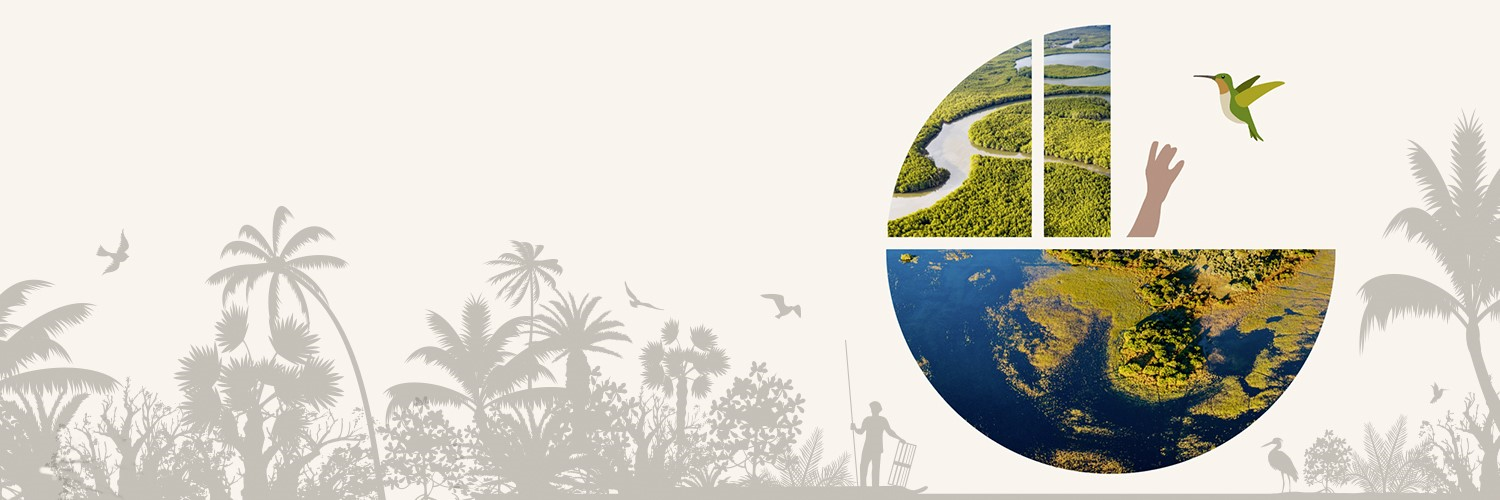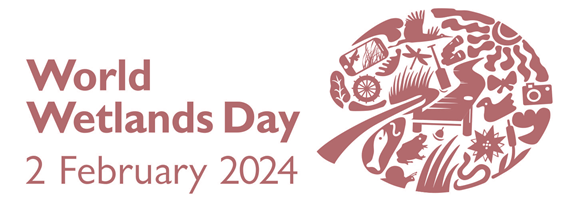
World Wetlands Day-- 2 February 2024
Today we celebrate World Wetlands Day #WWD2024.
— David Cooper (@hdavidcooper) February 2, 2024
Wetlands provide home to 40% of the world’s biodiversity. Sadly, 1/3 of them have disappeared over the last 50 years.
We must #ActforWetlands to safeguard these ecosystems & human wellbeing. The #BiodiversityPlan is key for that. pic.twitter.com/oxKz0o3O8Z
This year's World Wetlands Day theme is "Wetlands and Human Wellbeing". Wetlands provide essential benefits for people. They deliver food and clean water, they store floodwaters and protect coastal communities from the impact of extreme events. And, they lock aware carbon and help to cool the planet.
Wetlands also support livelihoods: Almost 1 billion households in Asia, Africa and the Americas rely on rice growing and processing for their main livelihoods. More than 660 million people depend on fishing and aquaculture for a living.
But, wetlands are under threat. Over a third of the world’s wetlands have disappeared over the last 50 years. Thus, the Kunming-Montreal Global Biodiversity Framework targets have been developed in an effort to restore and conserve wetlands, to tackle pollution and invasive species and to ensure that agriculture, aquaculture, forestry and fisheries are sustainable. Specifically relevant targets include:
- Target 2: Restore 30% of all Degraded Ecosystems
- Target 3: Conserve 30% of Land, Waters and Seas
- Target 11: Restore, Maintain and Enhance Nature’s Contributions to People
Inland Waters and Human Health
Inland water biodiversity is critically important to poverty reduction and the achievement of human development targets. The lack of access to safe drinking water is an indicator of poverty - groundwater supplies drinking water to an estimated 1.5-3 billion people – and in most areas groundwater is recharged through functioning wetlands; therefore sustaining its supply is a biodiversity-related issue. Similarly, the remainder of the world’s population relies on surface water – also maintained, to a large degree, by functioning freshwater ecosystems.
Estimates for the global economic importance of wetlands are highly variable, with an upper value of $15 trillion (USD, 2005). Intact wetlands have a net present value of 1.6 times that of sustainable forests, 5.8 times that of mangroves and 4.5 times that of forests under traditional management.

More information:
| How you can take action to supporting wetlands |
|---|
| Educate yourself and others about how wetlands and human wellbeing are interconnected. |
| Understand the value of the world’s wetlands and recognize human activities that threaten them. |
| Make choices that minimize the loss and degradation of wetlands. |
| Support wetland restoration – locally, regionally or nationally. Raise awareness of its critical importance. |
| Participate in a local wetland restoration project. Get input and help ensure that the restoration efforts reflect the needs of local residents. |
| Make water-friendly and ecosystem- conscious decisions: use water sparingly; adopt a diet with less environmental impact; avoid using toxic products that could flow into wetlands; and don’t dump waste or rubbish in wetlands. |
| Become a wetland champion who advocates for protecting local wetlands and for restoring degraded ones. Inspire the public to take action for healthy wetlands. |
| Create an advocacy effort that encourages local, state and national governments to prioritize wetlands as part of their sustainable development and climate action efforts. |